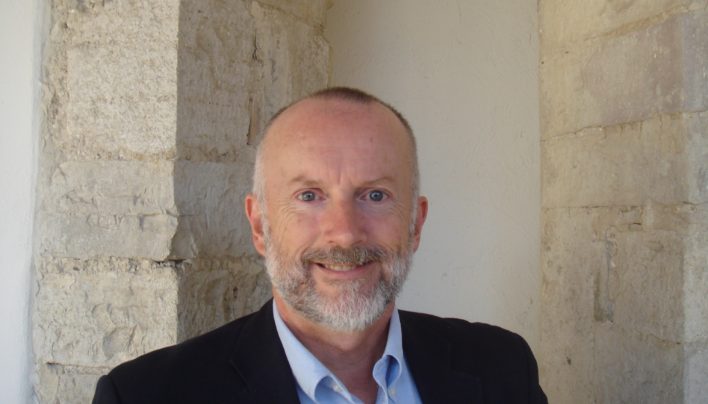The roll-call of mankind’s wars down the centuries is paralleled by an equally extensive catalogue of the theft, destruction, plundering, displacement and concealing of some of the greatest works of art. From the many wars of Classical Antiquity, through the military turning points and detours of the Fourth Crusade, the Thirty Years’ War, Revolutionary and Napoleonic France, World Wars I and II, and then onwards to the ongoing contemporary conflicts in Afghanistan, Iraq, Syria and Libya, the history of art crime in times of war contains myriad fascinating and often little-known stories of the fate of humankind’s greatest works of art. Plundering Beauty: A History of Art Crime During War charts the crucial milestones of art crimes spanning two thousand years. The works of art involved have fascinating stories to tell, as civilization moves from a simple and brutal ‘winner takes it all’ attitude to the spoils of war, to contemporary understanding, and commitment to, the idea that a society’s artistic heritage truly belongs to all humankind.
Unity chatted with Arthur Tompkins ahead of the launch of his new book Plundering Beauty: A History of Art Crime During War.
WHAT ARE YOU CURRENTLY READING AND HOW DID YOU DISCOVER THE BOOK(S)?
Ernest Hemingway’s The Sun Also Rises; Len Deighton’s A Funeral in Berlin, William Gibson’s Neuromancer; and Joseph Conrad’s A Secret Agent. All four are classics, three of the four are for me re-reads (I’ll leave you to guess which is the odd one out), and all four are written by stylists for whom getting the words right is at the heart of what they do as writers. And Mary Beard’s SPQR, a masterly enquiry into what turned a small, unimportant and unremarkable farming village on the banks of the Tiber into a world-spanning empire: I found this primarily via her “A Don’s Life” blog/podcast.
WHO ARE YOUR FAVOURITE WRITERS AND WHAT DO YOU LOVE ABOUT THEM?
Jane Austen, for the astounding lightness of tone she achieves, something which is deceptively, almost impossibly, hard to do; J R R Tolkein, for creating a world that doesn’t exist but so clearly and obviously should; William Gibson for his evocative grittiness, his way with slang and word-forms, and his summoning up of an imagined world so near to ours and getting closer every day; Douglas Adams for his comic invention and the way he seamlessly stiches together quantum mechanics, astrophysics, every-day ordinariness, and fall-about-laughing slapstick humour, as if they were all made for each other (which, given the white mice’s proclivities, they probably were).
WHAT BOOKS ARE ON YOUR BEDSIDE TABLE?
Len Deighton’s Funeral in Berlin; William Gibson’s Neuromancer; Mary Beard’s SPQR; A composite volume containing both of Conrad’s A Secret Agent and Heart of Darkness.
WHAT IS YOUR FAVOURITE BOOK-TO-FILM ADAPTATION?
Ian McKellen’s 1995 fascist rendering of Richard III: As soon as I finished watching it for the first time, I brought another ticket and went straight back to watch it again. And from 2015 Micheal Fassbender and Marion Cotillard’s Macbeth, directed by Justin Kurzel, where Shakespeare’s words – so deeply ingrained in our collective literary consciousness – were matched with a deeply-realised setting in medieval Scotland with all its grimness and darkness and cruelty, and made fresh and new again.
WHAT BOOK HAVE YOU RE-READ THE MOST AND WHY?
The Lord of the Rings, almost annually between about the age of 10 onwards. Because I loved (and still do) the richness and texture of his imagined world.
WHO IS YOUR FAVOURITE LITERARY CHARACTER?
Arthur Dent; Elizabeth Bennet; Molly Millions.
WHAT BOOK HAVE YOU ALWAYS BEEN MEANING TO READ BUT STILL HAVEN’T GOTTEN AROUND TO?
I’ve never quite made it through Charlotte Bronte’s Jane Eyre, despite several false starts … And very recently I was reminded that, along with much of the rest of the world, I have never got very far into Stephen Hawking’s A Brief History of Time – I lived one floor above him and his family in Cambridge for a year in 1983/84. Sadly none of his genius ever rubbed off on me, but I enjoyed the regular afternoon teas he invited us students from the upstairs floor to each term!
WHICH THREE WRITERS WOULD YOU HAVE OVER FOR SUPPER?
Jane Austen, Joseph Conrad, and Douglas Adams. I’m guessing that none of them would initially understand the other two, but all three are intense observers of the human condition and together they would make the dinner table hum.
WHAT WOULD YOU COOK THEM?
We’d go out … to a small Italian bistro, and argue about the bill afterwards. Douglas Adams would end up paying, having failed to do the unruly mathematics.
HOW ARE YOUR BOOKS SHELVED AND ORGANISED AT HOME?
Most of them are in my office, divided more or less into classic literature, popular fiction, travel (mostly Italy), art crime, non-fiction, Shakespeare, Sherlock Holmes and Tolkien, and dictionaries. Haphazardness is always close to breaking out.
WHAT IS YOUR FAVOURITE LITERARY QUOTE?
The only negative metaphor I know of in English literature (having said that, careful readers will probably and immediately identify many more!): Douglas Adams’ “The ships hung in the sky in much the same way that bricks don’t”, from The Hitchiker’s Guide to the Galaxy.
And Hemingway’s answer to a mystified interviewer’s question as to what he was doing when he rewrote the last page of A Farewell to Arms thirty-nine times: “Getting the words right.”
To view an archive of previous interviews, follow this link.



